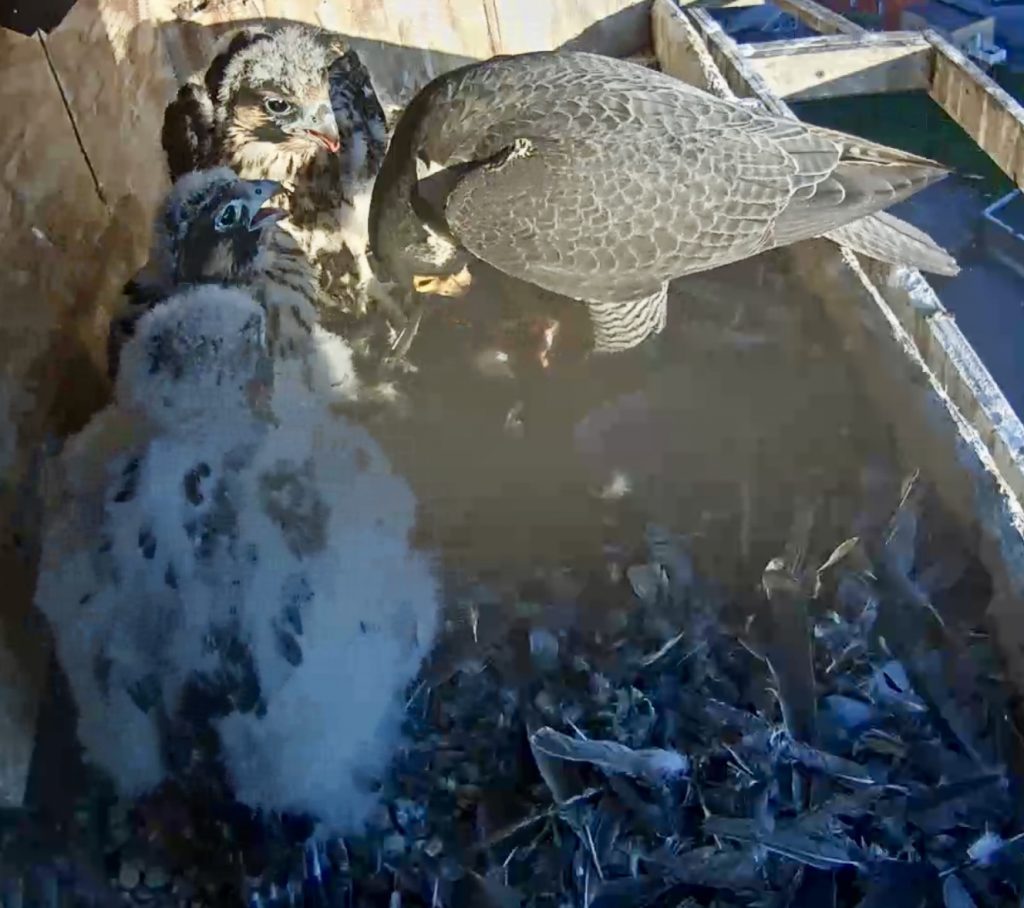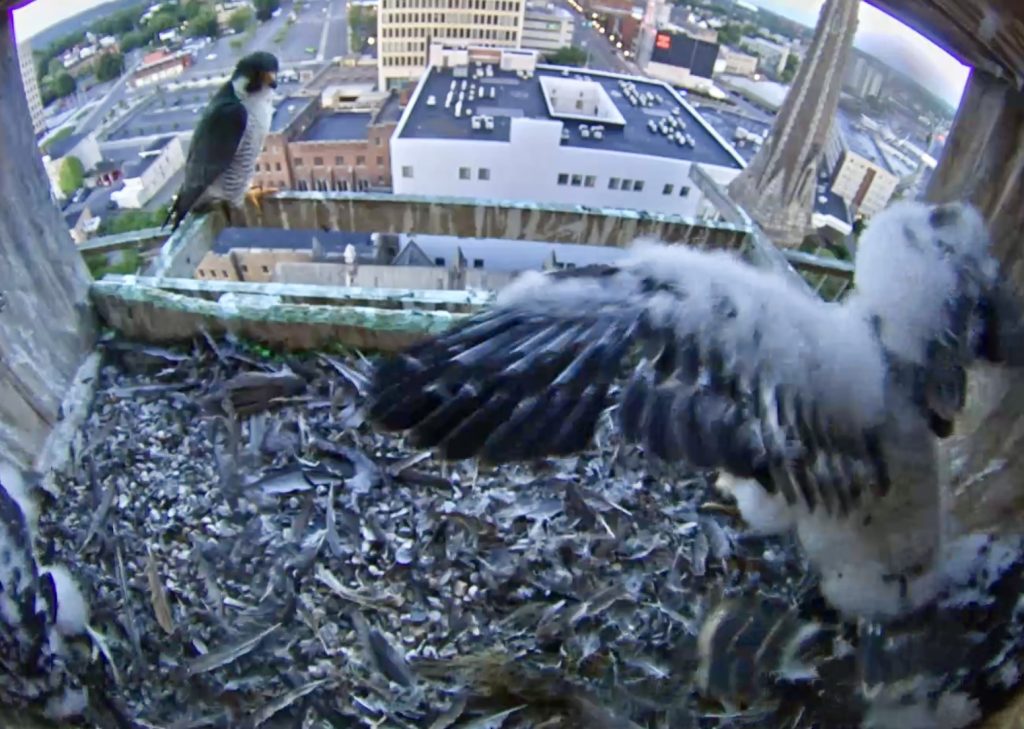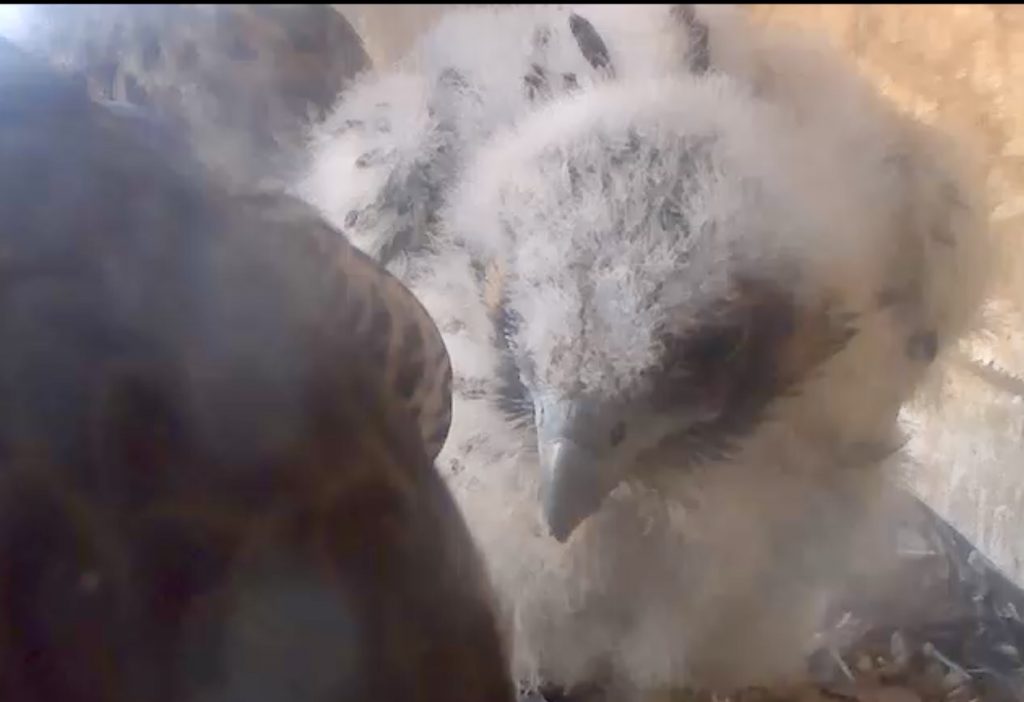Update for Friday, May 31, 2024

We are now only eight days away from the start of fledgewatch. As an organization, we consider this activity the most important thing we do. Indeed, over the last decade, during fledgewatch we have rescued eight young birds, most of which, undoubtably would not have survived without an intervention. All eight were then successfully released back into their urban canyon and back to the care of Astrid and Ares. Spotting and being prepared to rescue fledgling Peregrine Falcons when they leave their nests for the first time is crucial for several reasons. Urban environments present unique challenges for young falcons, which can significantly impact their survival chances. Buildings, vehicular traffic, and other human-related hazards make the fledging process particularly perilous. Ensuring their safety during this critical period can help support the recovery and sustainability of Peregrine Falcon populations in the region and it would significantly assist Astrid & Ares in their breeding objectives.

When fledgling Peregrines take their initial flights, they often lack the strength, coordination, and experience to navigate the complex urban landscape effectively. They may misjudge distances, become exhausted quickly, or fail to land on secure perches, leading to situations where they end up on the ground, in traffic or in other dangerous locations. By closely monitoring these fledglings, fledgewatch volunteers can quickly intervene if a young falcon encounters trouble. Timely rescues can prevent injuries or fatalities, giving fledglings a second chance to develop their flight skills safely. Importantly, when given a second chance, almost invariably, fledglings do exceptionally well – having learned much from their initial mistakes.
